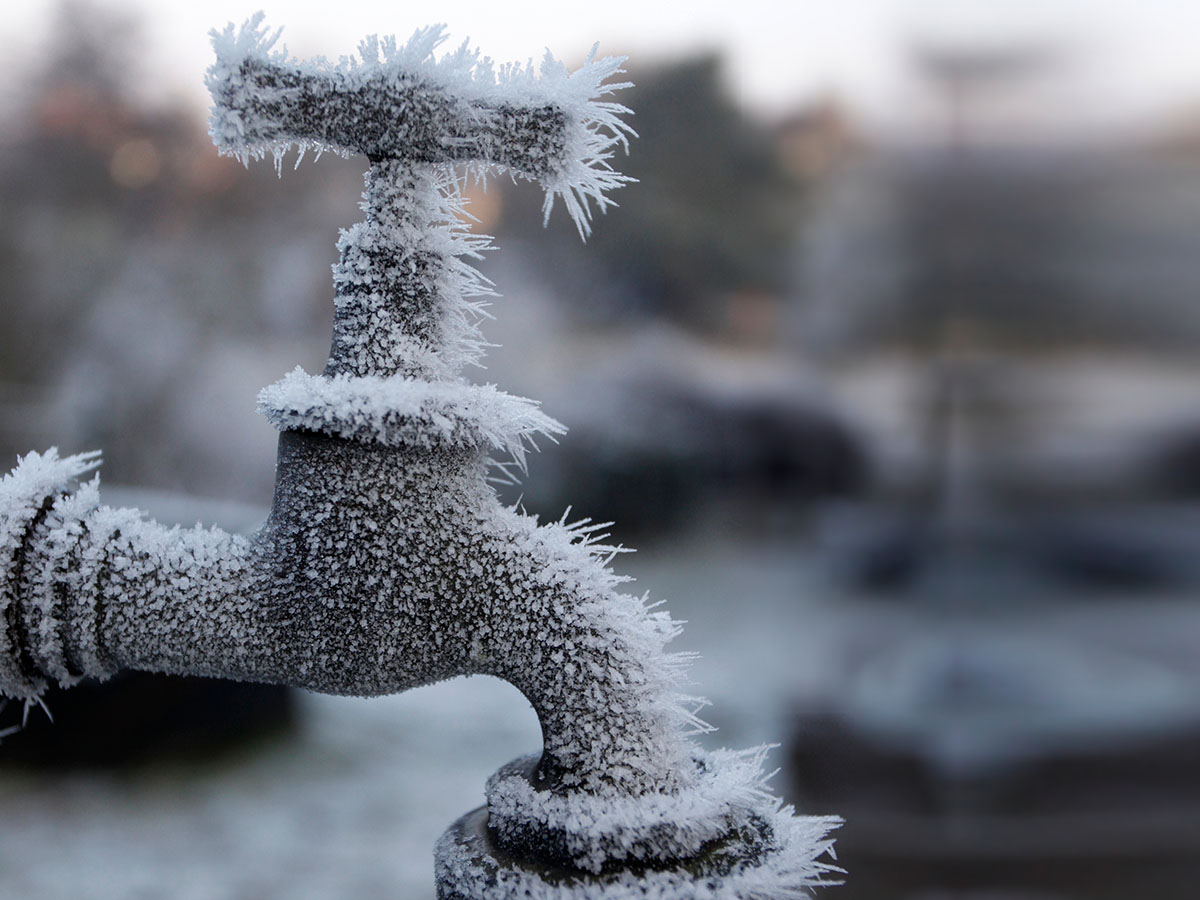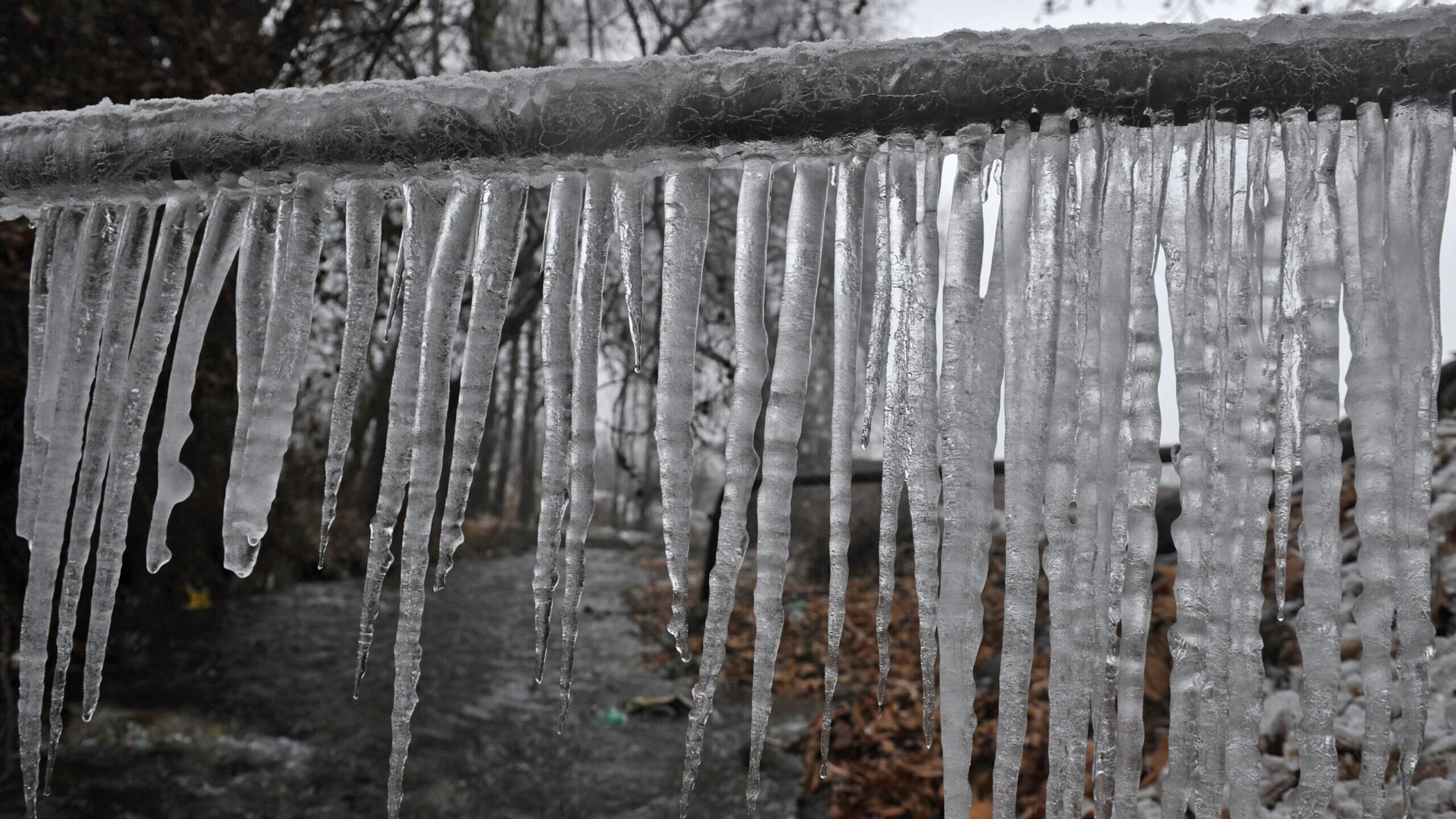Avoid Frozen Plumbing in Cold Weather: Pro Tips
Avoid Frozen Plumbing in Cold Weather: Pro Tips
Blog Article
We've come across the article involving Helpful Tips to Prevent Frozen Pipes this Winter directly below on the net and accepted it made perfect sense to discuss it with you on this site.

Cold weather can wreak havoc on your pipes, specifically by freezing pipelines. Right here's how to stop it from taking place and what to do if it does.
Introduction
As temperatures decline, the danger of frozen pipelines boosts, possibly causing expensive repairs and water damages. Understanding just how to prevent icy pipes is critical for house owners in cold climates.
Avoidance Tips
Insulating prone pipes
Wrap pipelines in insulation sleeves or use warm tape to shield them from freezing temperatures. Focus on pipelines in unheated or external areas of the home.
Heating methods
Keep indoor spaces adequately warmed, especially areas with plumbing. Open up closet doors to allow warm air to distribute around pipelines under sinks.
Just how to recognize icy pipelines
Seek decreased water circulation from taps, unusual smells or sounds from pipelines, and noticeable frost on subjected pipelines.
Long-Term Solutions
Structural changes
Think about rerouting pipes away from outside wall surfaces or unheated areas. Add extra insulation to attics, basements, and crawl spaces.
Upgrading insulation
Invest in top notch insulation for pipelines, attic rooms, and wall surfaces. Correct insulation aids preserve constant temperatures and lowers the threat of icy pipes.
Safeguarding Outdoor Plumbing
Yard pipes and outside faucets
Separate and drain garden hoses prior to winter season. Install frost-proof faucets or cover outdoor taps with protected caps.
Understanding Icy Pipes
What triggers pipes to ice up?
Pipelines freeze when revealed to temperatures listed below 32 ° F (0 ° C) for extended durations. As water inside the pipelines freezes, it broadens, taxing the pipe wall surfaces and possibly causing them to burst.
Risks and damages
Icy pipes can cause water disruptions, residential property damages, and costly repair services. Ruptured pipes can flood homes and cause extensive architectural damages.
Indications of Frozen Pipeline
Identifying icy pipelines early can prevent them from bursting.
What to Do If Your Pipelines Freeze
Immediate actions to take
If you suspect icy pipes, maintain faucets open to eliminate pressure as the ice thaws. Utilize a hairdryer or towels taken in hot water to thaw pipelines slowly.
Final thought
Stopping frozen pipelines calls for proactive measures and fast responses. By understanding the reasons, signs, and safety nets, house owners can protect their pipes throughout cold weather.
Helpful Tips to Prevent Frozen Pipes this Winter
UNDERSTANDING THE BASICS: WHY PIPES FREEZE AND WHY IT’S A PROBLEM
Water freezing inside pipes is common during the winter months, but understanding why pipes freeze, and the potential problems it can cause is crucial in preventing such incidents. This section will delve into the basics of why pipes freeze and the associated problems that may arise.
THE SCIENCE BEHIND FROZEN PIPES
When water reaches freezing temperatures, it undergoes a physical transformation and solidifies into ice. This expansion of water as it freezes is the primary reason pipes can burst. As the water inside the pipe freezes, it expands, creating immense pressure on the walls. If the pressure becomes too great, the pipe can crack or rupture, leading to leaks and water damage.
FACTORS THAT CONTRIBUTE TO PIPE FREEZING
Low Temperatures: Extremely cold weather, especially below freezing, increases the risk of pipes freezing. Uninsulated or Poorly Insulated Pipes: Pipes located in unheated areas, such as basements, crawl spaces, or attics, are more prone to freezing. Insufficient insulation or lack of insulation altogether exacerbates the problem. Exterior Wall Exposure: Pipes running along exterior walls are susceptible to freezing as they encounter colder temperatures outside. Lack of Heating or Temperature Regulation: Inadequate heating or inconsistent temperature control in your home can contribute to frozen pipes. PROBLEMS CAUSED BY FROZEN PIPES
- Pipe Bursting: As mentioned earlier, the expansion of water as it freezes can cause pipes to burst, resulting in significant water damage.
- Water Damage: When pipes burst, it can lead to flooding and water damage to your property, including walls, ceilings, flooring, and personal belongings.
- Structural Damage: Prolonged exposure to water from burst pipes can compromise the structural integrity of your home, leading to costly repairs.
- Mold and Mildew Growth: Excess moisture from water damage can create a favorable environment for mold and mildew growth, posing health risks to occupants.
- Disrupted Water Supply: Frozen pipes can also result in a complete or partial loss of water supply until the issue is resolved.
WHY CERTAIN PIPES ARE MORE PRONE TO FREEZING
- Location: Pipes located in unheated or poorly insulated areas, such as basements, crawl spaces, attics, or exterior walls, are at higher risk of freezing.
- Exterior Pipes: Outdoor pipes, such as those used for irrigation or exposed plumbing, are particularly vulnerable to freezing as they are directly exposed to the elements.
- Supply Lines: Pipes that carry water from the main water supply into your home, including the main water line, are critical to protect as freezing in these lines can affect your entire plumbing system.
- Underground Pipes: Pipes buried underground, such as those connected to sprinkler systems or outdoor faucets, can be susceptible to freezing if not properly insulated.
https://busybusy.com/blog/helpful-tips-to-prevent-frozen-pipes-this-winter/

Hopefully you enjoyed our excerpt on Prevent Frozen Pipes . Thank you for taking time to read through our blog post. Make sure you set aside a second to distribute this article if you appreciated it. Thank you so much for taking the time to read it.
Schedule Today Report this page